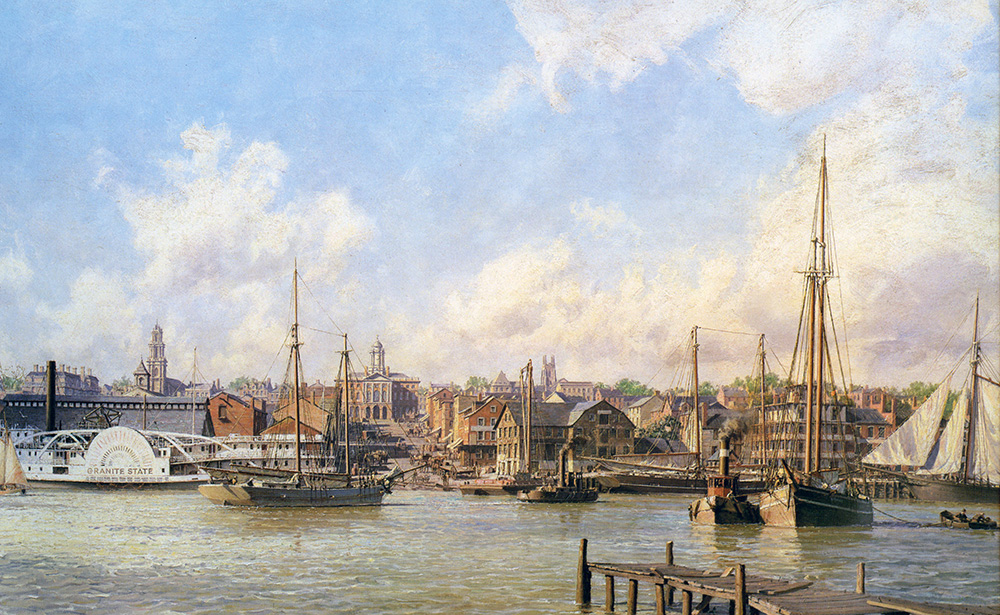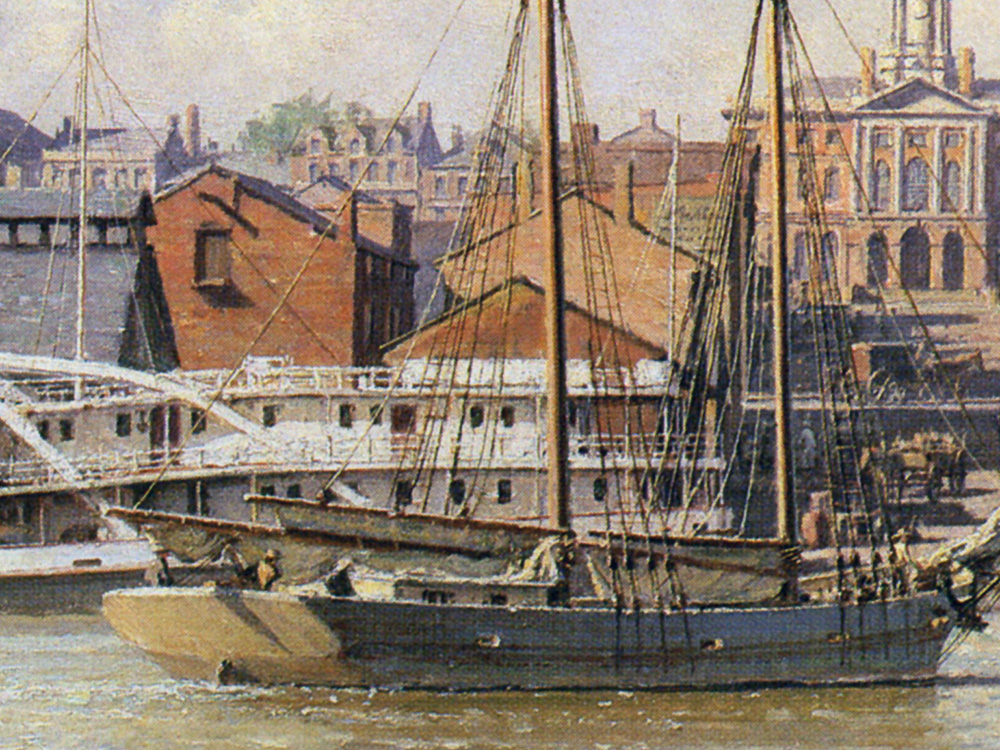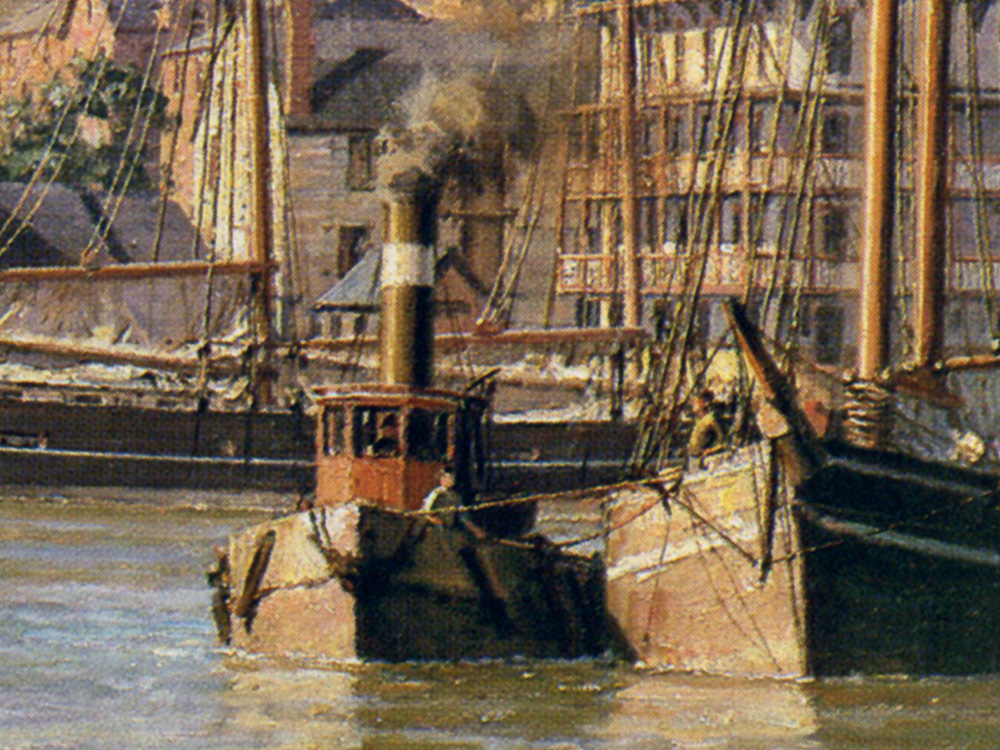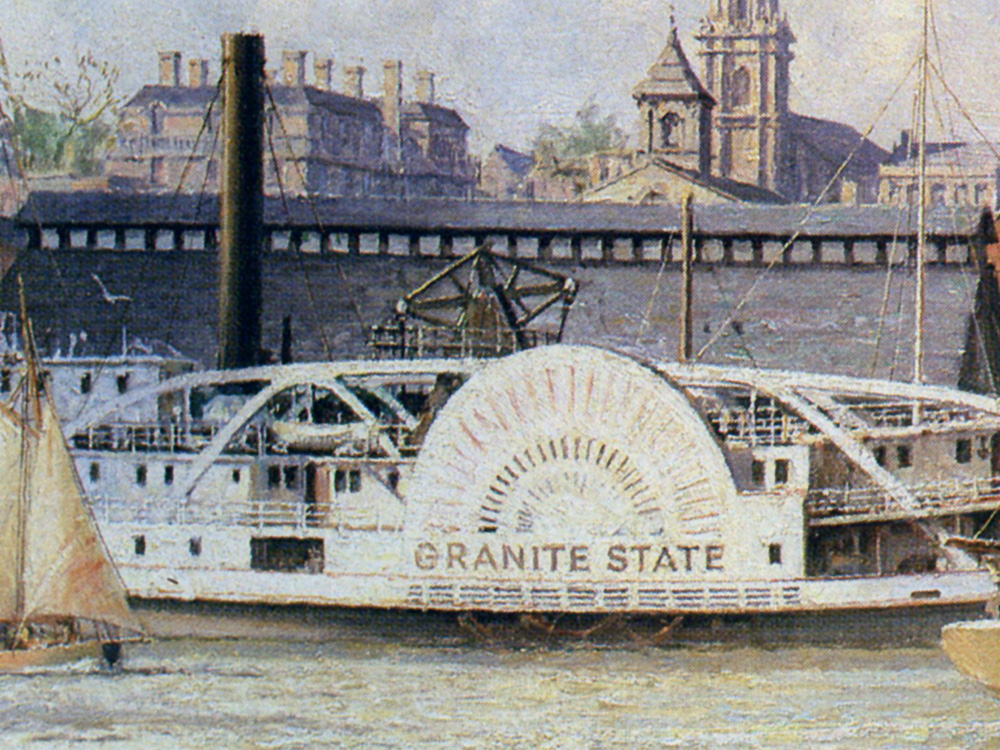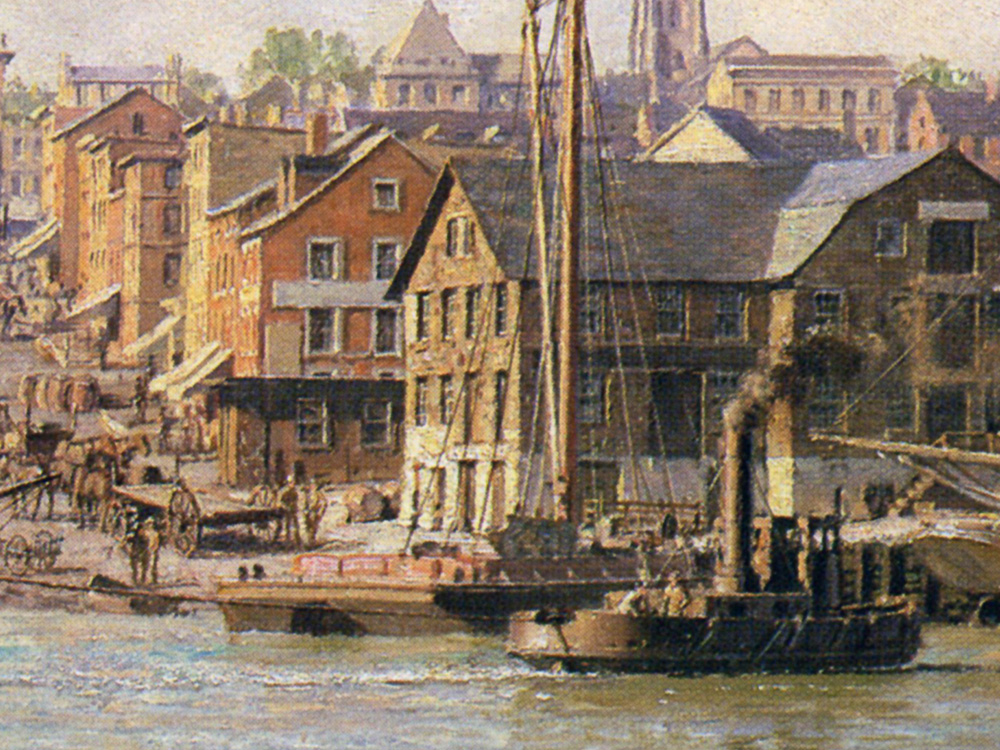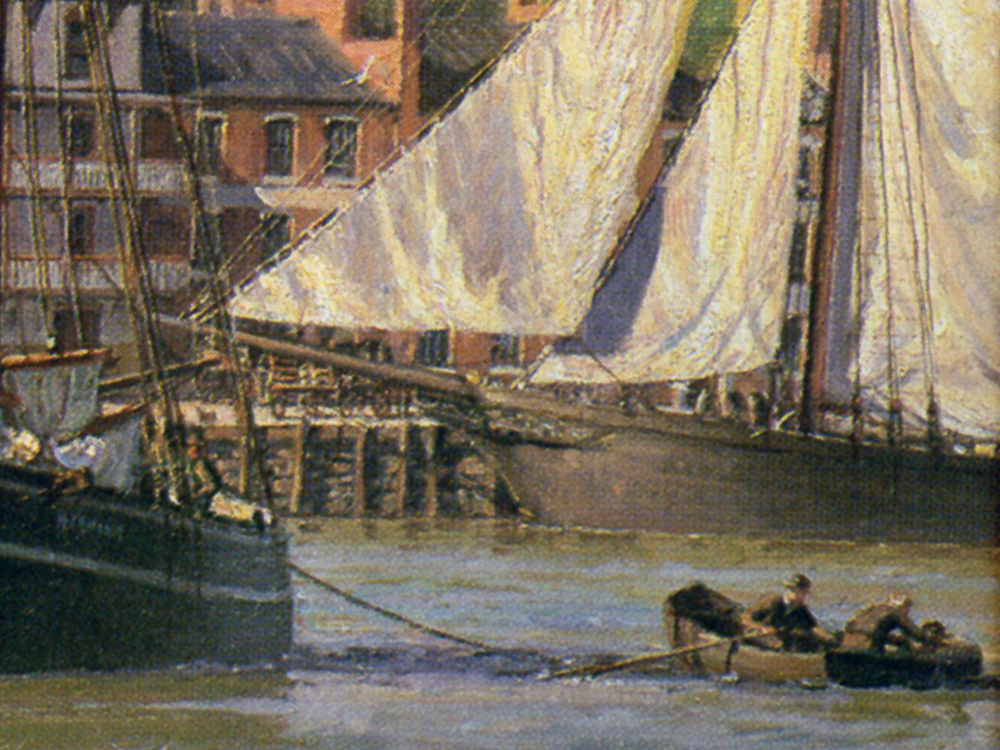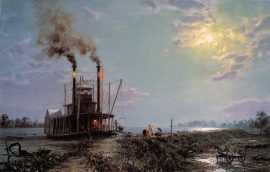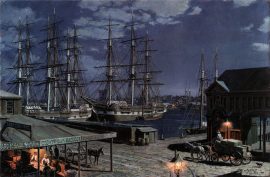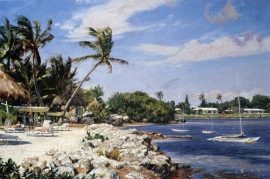Hartford: A View of the State House from the Connecticut River Waterfront in 1876
$2,300.00 Original price was: $2,300.00.$2,070.00Current price is: $2,070.00.
Today as one crosses the bridge just south of “Insurance City” and looks down at the broad Connecticut River, the idea that Hartford was once a thriving inland port seems to be Babylonian myth. There is hardly one trace left of Hartford's maritime history. It could be asked: why was this a port in the first place, and, more important, what happened?
Settled as Newtown by Thomas Hooker and Samuel Stone in 1635, Hartford shared the honor of being the capital city of Connecticut along with New Haven. An important military depot during the American Revolution, Hartford emerged as the leading city of Connecticut.
The invention of steam navigation in the United States is usually credited to Robert Fulton and his Clermont, which plied the Hudson River up to Albany. But John Fitch had a steamboat operating successfully between Hartford and Springfield as early as 1790, according to Hartford historical sources. It was also noted that Charles Dickens on his American trip traveled to Hartford from Spnngfield in 1842 on a steamboat.
Hartford and the development of the American steamboat had several close ties. Mark Twain lived and wrote in the Hartford area. Down by the riverfront, a group of men led by Jeremiah Wads worth met at Morgan's Coffee House, actually a popular, elbow-bending pub owned by J. P.'s grandfather. Here they originated a new betting game: risk-taking. By calculating odds on ships, both steam and sail, they came up with a guaranteed moneymaking wager. Later this casualty business would be called marine insurance. One of the first companies established in Hartford was the Steam Boiler and Inspection Company. They insured boilers, a few of which blew up on the Connecticut River.
The initial marine policies in America were written in Hartford, and the city became the hub of the insurance industry. At that time, the river was alive with sail and steamers, and a regular steamship packet service ran in to Hartford. The city boosters, a group of optimists, believed that Hartford would become an international shipping port, and although that dream folded with the coming of the railroad, Hartford's merchants and captains established a system of marine underwriting, the claims on which were scrupulously paid by the fledgling insurance carriers.
It was with these assurances against disaster that other entrepreneurs found the encouragement to build ships and trade them all over the world. Hartford was, indeed, a vibrant port, but its real contribution to American shipping was the introduction of the marine insurance policy.
Out of stock
| Weight | 6.00 lbs |
|---|---|
| Catalog: | Stobart-067 |
| Artist: | John Stobart |
| Dimensions: | 18" x 30 1/2" |

